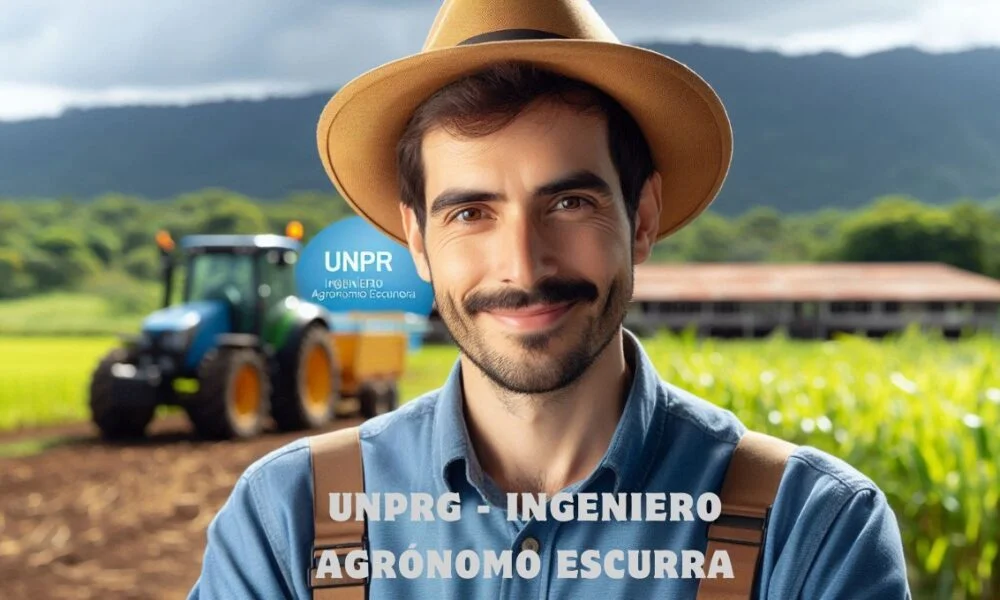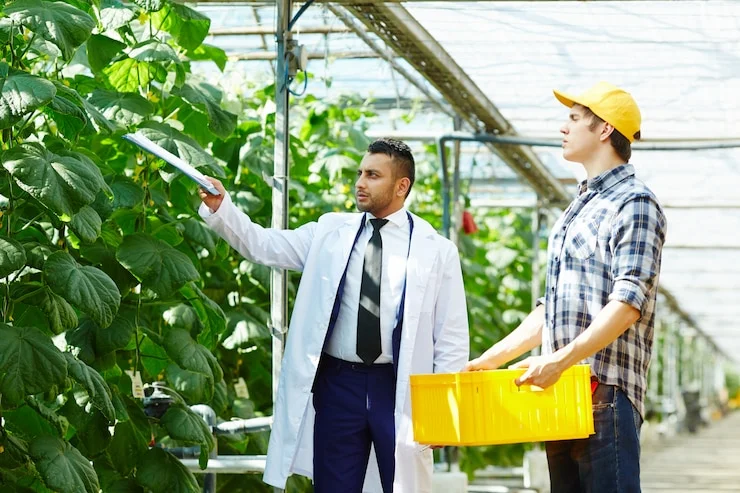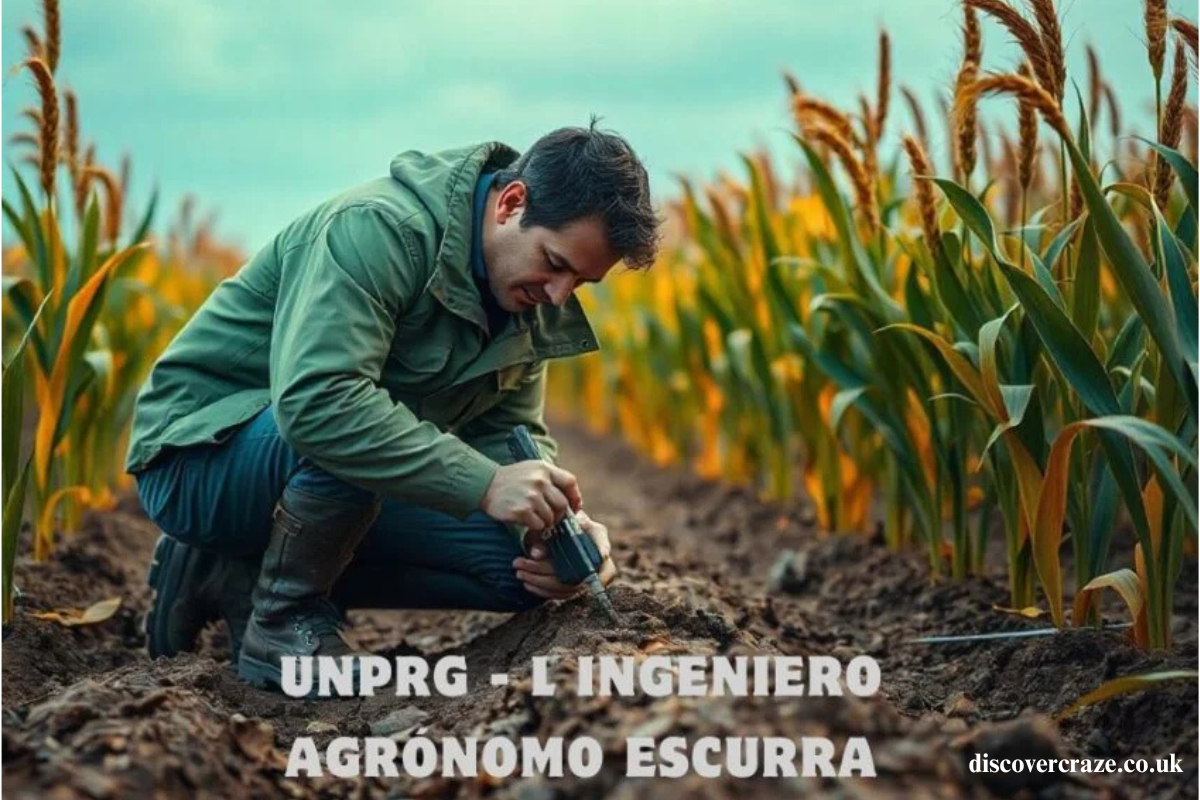Introduction
unprg – ingeniero agrónomo escurra clso, The world of agriculture is ever-evolving, and with it, the need for skilled professionals who can navigate the complexities of food production, sustainability, and environmental stewardship has never been more critical. One such pathway to expertise is through the study of agricultural engineering at institutions like the Universidad Nacional Pedro Ruiz Gallo (UNPRG) in Peru.
Understanding Agricultural Engineering
Agricultural engineering is a multifaceted discipline that combines elements of engineering, biological sciences, and agricultural practices. It focuses on improving the efficiency of agricultural processes and developing technologies that enhance food production while ensuring sustainable practices. This field is particularly important as the global population continues to grow, leading to increased demands for food and resources.
The Role of an Agricultural Engineer
An agricultural engineer, or “ingeniero agrónomo,” plays a vital role in various aspects of agriculture, including:
Soil Management: Understanding soil properties and dynamics to enhance crop yield while maintaining soil health.
Irrigation Systems: Designing efficient irrigation systems that conserve water and maximize productivity.
Machinery and Equipment: Developing and optimizing agricultural machinery to improve farming efficiency and safety.
Sustainable Practices: Implementing eco-friendly practices that protect natural resources and promote biodiversity.
Food Processing: Enhancing food processing techniques to reduce waste and improve quality.
The Curriculum at UNPRG
unprg – ingeniero agrónomo escurra clso, At UNPRG, the curriculum for agricultural engineering is designed to equip students with the necessary knowledge and skills. Key components of the program include:
Theoretical Foundations: Courses in mathematics, physics, and biology provide a solid groundwork for understanding complex agricultural systems.
Practical Applications: Hands-on training in laboratories and fieldwork ensures students can apply theoretical concepts in real-world scenarios.
Research Opportunities: Students are encouraged to engage in research projects that address current challenges in agriculture, such as climate change and food security.
Interdisciplinary Approach: Collaboration with other disciplines, such as environmental science and economics, fosters a holistic understanding of agricultural issues.
Career Opportunities

unprg – ingeniero agrónomo escurra clso, Graduates of the agricultural engineering program at UNPRG find themselves well-prepared for a variety of career paths. Opportunities include:
Agricultural Consultant: Advising farmers and agricultural businesses on best practices and innovative technologies.
Research Scientist: Conducting studies to develop new agricultural methods and improve crop varieties.
Farm Manager: Overseeing the day-to-day operations of agricultural enterprises.
Environmental Analyst: Assessing the environmental impact of agricultural practices and promoting sustainability.
Importance of Agricultural Engineering in Today’s World
As the world faces challenges such as climate change, resource scarcity, and food insecurity, the role of agricultural engineers becomes increasingly critical. They are at the forefront of developing sustainable practices that not only increase food production but also protect the environment.
By addressing issues like soil degradation, water scarcity, and the effects of monoculture, agricultural engineers help pave the way for a more sustainable future. Their work contributes not only to local economies but also to global food systems.
Case Study: Enhancing Crop Yield Through Precision Agriculture
Background
In a rural region of Peru, a collaborative initiative between agricultural engineers from the Universidad Nacional Pedro Ruiz Gallo (UNPRG) and local farmers aimed to tackle the challenges of low crop productivity and resource inefficiency. The area primarily focused on maize and soybean production, which are crucial for local economies but faced issues such as soil degradation and water scarcity.
Objectives

Increase Productivity: Boost crop yields for maize and soybeans by leveraging advanced agricultural techniques.
Resource Efficiency: Reduce water consumption and fertilizer use to promote sustainable farming practices.
Farmer Education: Provide local farmers with knowledge and tools to implement precision agriculture effectively.
Methodology
Soil Analysis:
Conducted detailed assessments to evaluate soil health, nutrient availability, and pH levels.
Identified specific deficiencies in nutrients such as nitrogen and phosphorus.
Drone Technology:
Utilized drones equipped with multispectral cameras to assess crop health and identify areas requiring attention.
Monitored crop growth patterns and stressed areas to optimize interventions.
Data-Driven Decisions:
Installed soil moisture sensors to provide real-time data on water needs.
Developed a decision-support system using weather forecasts and sensor data for precise irrigation scheduling.
Training Workshops:
Organized workshops and hands-on training sessions for farmers to introduce them to precision agriculture tools and methods.
Provided resources on sustainable farming practices, including integrated pest management and organic fertilizers.
Results
Yield Increase:
Crop yields improved significantly, with maize yields rising by 25% and soybean yields by 30% within the first year of implementation.
Water Savings:
Water consumption was reduced by 40%, thanks to more efficient irrigation practices tailored to actual crop needs.
Cost Reduction:
Farmers reported a decrease in fertilizer costs by 20% due to targeted applications based on soil analysis.
Farmer Engagement:
Over 80% of participating farmers reported feeling more knowledgeable about sustainable practices and expressed a commitment to continuing the use of precision agriculture tools.
Community Impact:
The initiative fostered a sense of community among farmers, encouraging collaboration and knowledge sharing.
Conclusion
This case study illustrates the transformative power of integrating modern technology with traditional farming practices. By employing precision agriculture, UNPRG engineers and local farmers enhanced agricultural productivity while promoting sustainability. The collaboration serves as a model for future agricultural initiatives, demonstrating that technology, when combined with local knowledge, can lead to significant improvements in food production and environmental health.
FAQ
1. What is an agricultural engineer?
An agricultural engineer specializes in applying engineering principles to agricultural processes, focusing on improving efficiency, productivity, and sustainability in farming practices.
2. What can I expect from the agricultural engineering program at UNPRG?
The program offers a well-rounded curriculum, including courses in soil science, irrigation management, agricultural machinery, and environmental conservation, along with practical training and research opportunities.
3. What career paths are available for agricultural engineering graduates?
Graduates can pursue diverse careers, including agricultural consultants, research scientists, farm managers, crop production specialists, environmental analysts, and roles in governmental or non-governmental organizations focused on food security and sustainability.
4. How does precision agriculture benefit farmers?
Precision agriculture allows farmers to optimize their resources by using data-driven approaches to maximize yields while reducing waste. It leads to improved crop health, increased efficiency, and cost savings.
5. Why is sustainability important in agriculture?
Sustainable agricultural practices help conserve natural resources, mitigate the impacts of climate change, and ensure food security for current and future generations. They promote biodiversity and soil health, contributing to a resilient agricultural system.
6. What technologies are commonly used in precision agriculture?
Common technologies include GPS-guided equipment, drones for aerial imagery, soil moisture sensors, climate monitoring systems, and data analytics software to interpret and apply data for better decision-making.
7. How can farmers get involved in precision agriculture?
Farmers can start by participating in workshops, seeking advice from agricultural engineers, and gradually incorporating technologies that suit their specific farming operations and budgets.
Conclusion
Studying agricultural engineering at UNPRG provides students with a unique opportunity to become leaders in the agricultural sector. With a focus on innovation, sustainability, and practical application, graduates emerge equipped to tackle the pressing challenges facing the world today. Whether through research, consulting, or on-the-ground management, the contributions of an “ingeniero agrónomo” are essential for ensuring food security and promoting responsible agricultural practices in an ever-changing landscape.
As we move forward, the importance of this field will only continue to grow, making agricultural engineers indispensable allies in the quest for a sustainable future.
